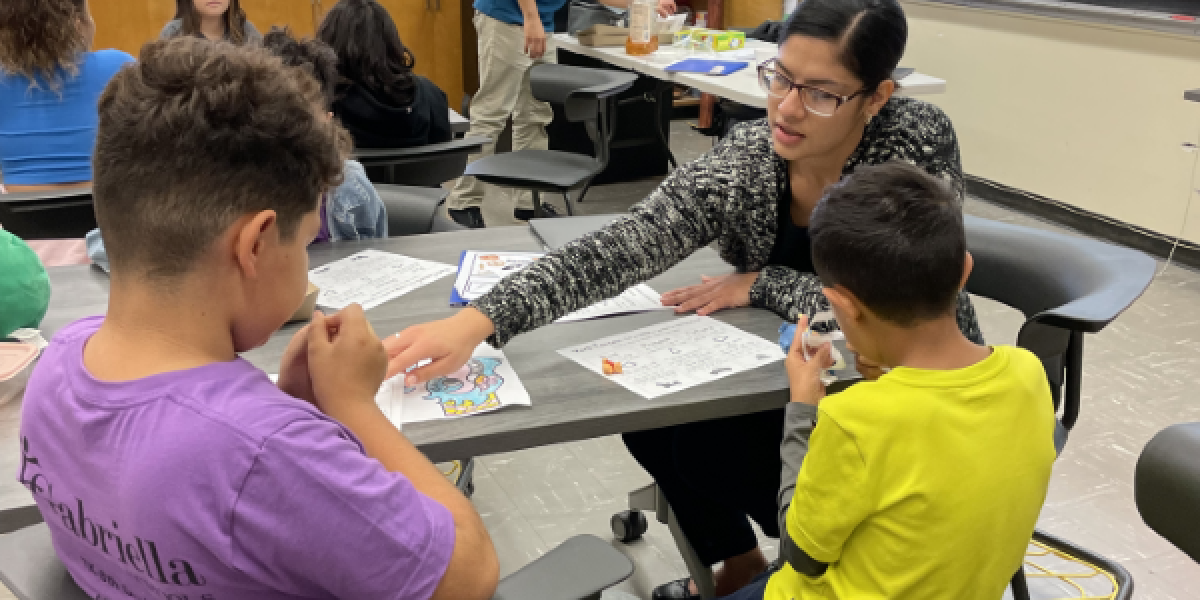Certificate Transition Specialist

Why Transition Specialist?
The purpose of the Transition Specialist Certificate program is to train teachers and counselors to become competent in (1) conducting research to contribute in policy making and evidence-based practices in current transition field, (2) providing and designing appropriate and effective transition services to students with disabilities, and (3) evaluating transition plans in the light of collaboration among professionals including business and community leaders as well as parents, teachers, and other adult service professionals in the multicultural/multilingual urban settings.
Graduates of the Transition Specialist Certificate program will develop a commitment to optimizing the outcome for all students with disabilities who are in transition from early childhood to adulthood. Candidates of this program will be aware of the importance of transition programs for students with disabilities, the various roles and functions of professionals in transition, and the impact of cultural diversity on education. They must be able (1) to conduct research in transition studies for academic advancement and career development, (2) to provide culturally appropriate transition services; (3) to build collaboration with the adult service providers, community leaders and business owners; (4) to promote parent participation of young adults with disabilities; (5) to build partnerships among professionals for effective collaboration; and (6) to evaluate the effectiveness of current transition plans.
- Advocacy Organizations: Advocating for children/people with disabilities
- Public Schools*: Providing a transition service plan for students with disabilities who are in transition from school to adulthood.
- Transition Service Organizations: Serving as a transition specialist who conducts transition assessments, Building inter-agency collaboration
- Rehabilitation Counselors**: Developing jobs and providing job coaching
- School Counselors***: Providing various counseling including career counseling
- Regional Center Counselor: Providing services for people with developmental disabilities
- Post-secondary institutes: You can work as a counselor for students with disabilities who attend colleges and universities
* To be a school teacher, you need to complete the teaching credential.
** To become a certified Rehabilitation Counselor, you need to complete the rehabilitation master's program.
*** To become a certified School Counselor, you need to complete the school counseling program.
For more information on career options: http://www.onetonline.org/link/summary/21-1015.00
REQUIREMENTS
Coursework and Field Experience:
Transition Special Certificate is built upon three programs; a teaching specialist program, a rehabilitation counseling program, and a school counseling program. Teaching credential programs and School counseling programs are critical for those students who want to become competent in the area of transition service needs for students with disabilities in the public school system. The rehabilitation counseling program is critical for those who want to work with young adults and adults in the Rehabilitation services and social service fields. Through the credential programs, they will learn the generic area of special education and counseling, the unique educational needs of students with disabilities who are in transition, and collaboration among professionals. Through the certificate programs in counseling, they will learn the generic area of special education and rehabilitation counseling, unique techniques to counsel young adults and adults in the rehabilitation system, and collaboration among professionals.
Transition plans for young adults with disabilities should be comprehensive including not only plans for vocational aspects but also plans for independent living, a career in general, recreation and leisure, community living, and post-secondary education according to students’ interests and preferences. All candidates in the Transition Specialist Certificate will be trained to meet all areas of curriculum and practical instructional strategies which are specifically designed for planning and teaching students with disabilities who are in transition. Furthermore, candidates will be trained to be involved in research and to discuss current issues in students with disabilities who are getting ready to leave the school setting for an independent adult living setting.
FREQUENTLY ASKED QUESTIONS
Q: What students have to apply for a certificate?
A: The student completing a baccalaureate, post-baccalaureate, or graduate certificate who is completing their final semester for the certificate or who has completed the certificate during a prior term.
Q: When does the student have to apply?
A: During the semester that they are completing the certificate.
Q: Does a student who finished the Summer session or before have to apply to receive a certificate?
A: YES – any student, regardless of completion term will have to apply for a certificate.
Q: What if the student finished the certificate during a previous semester, when do they apply?
A: As soon as possible.
Q: For those students who apply on time, when will their certificate be posted?
A: At the end of the semester they complete the requirements for the certificate after grades are released; just like final grad checks.
Q: Is the certificate posted on the student’s transcript?
A: Yes
Program Faculty
As a part of the Transition Specialist Certificate students receive individual advisement and instruction from expert faculty members who combine extensive classroom-teaching experience, rehabilitation counseling, research, and pre-service and in-service professional development in the area of Transition services for students with disabilities from multicultural and multilingual communities. For more information regarding the Transition Specialist Certificate, contact any EITHER of the program coordinators below:
Office: King Hall C1034
E-mail: bthornt4@calstatela.edu